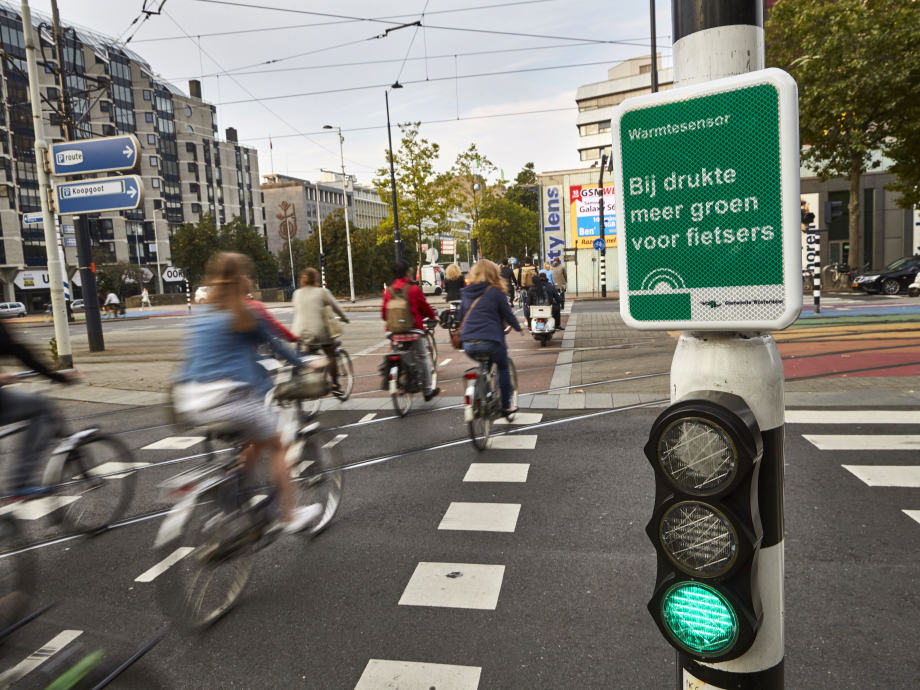The smart city in real life
Stoplights that switch to green for cyclists when it’s raining, matrix signs that automatically inform festival-goers when a market square has reached maximum capacity: data and technology are making cities ‘smart’. The Rathenau Instituut has studied the smart city phenomenon in the Netherlands and its impact on the public.

What is a smart city?
Smart cities use data and smart IT in their governance and management. A technology is ‘smart’ if it uses sensors to observe and can analyse the incoming data independently so as to respond appropriately to its environment.
What are Dutch cities doing?
In this study, we answered three questions: how are Amsterdam, Rotterdam, The Hague, Utrecht and Eindhoven (the five biggest cities in the Netherlands) already making use of data and smart technology? What impact is this having on such public values as privacy, online security and autonomy? And how are municipal governments dealing with this in their projects?
Read our findings in these three articles:
- Data-driven cities
- Are smart-city practices putting pressure on public values?
- How are municipal governments safeguarding public values in the smart city?
What’s the point of this study?
Businesses, the research community and government have written volumes about the ‘smart city’. Some hail smart cities as the coming solution to all our urban problems. Others warn about ‘Big Brother cities’ that will completely undermine their inhabitants’ privacy and autonomy. The Rathenau Instituut is looking at smart-city practices in the Netherlands and what impact they are having on city-dwellers.
To get a better idea of what Dutch cities are actually doing, we interviewed smart city professionals. Eight of them are heading up smart city or data-driven city management projects in one of the five largest Dutch cities, and five work for relevant civil society organisations (the Waag Society in Amsterdam, DATA Studio in Eindhoven, SETUP in Utrecht, ICX in The Hague, and Creating010 in Rotterdam). We also analysed policy documents and attended ten meetings on the smart city, one organised by the relevant municipal governments, and another by civil society organisations and knowledge institutions.
Research method
Between March and June 2017, we conducted six semi-structured interviews with project coordinators, trailblazers or strategic consultants involved in ‘smart city’ and data-driven projects in the five largest Dutch cities: Amsterdam, Rotterdam, Utrecht, Eindhoven and The Hague (2 interviews). They represent the views of local government and are well informed about ongoing projects. We also collected the relevant policy documents, for example municipal council memoranda, implementation programmes and progress reports. In addition, we conducted five interviews with staff working for civil society organisations active in the five cities who are critical of data-driven cities and attempting to involve the public. We further attended ten meetings on the data-driven city (one organised by the network of 32 medium-sized and large cities in the Netherlands and various others organised by knowledge institutions and civil society organisations). These meetings gave us an opportunity to familiarise ourselves with the actors and issues, to recruit survey respondents, and to make additional observations.